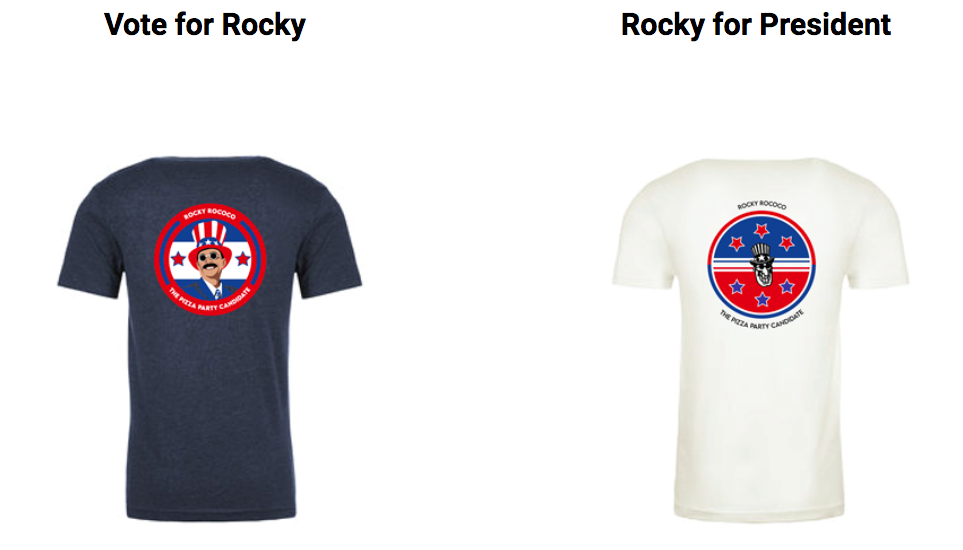As the 2024 election season nears its close, a growing number of businesses around the area are stepping into the political engagement—not with the normal traditional advertising, but with humor. From quirky social media campaigns to hilarious product T-shirts, companies are using comedy to engage voters and draw attention to their brands.
One standout example is Rocky Rococo by selling two types of T-shirts for a limited time. This election season, the company has launched its “Vote for Rocky” campaign, featuring slogans like “Rocky for president.” Customers can purchase the T-shirts for $10. This campaign is designed not only to attract customers but also to encourage civic engagement, with a portion of the proceeds going to voter registration initiatives.
Similarly, memes have been taking social media by storm. From Snapchat to TikTok, it has been helping both campaigns to show the world to get Gen Z voters to see who has what in store.
With Kamala Harris, her biggest meme was with mega pop-star Charli XCX album, Brat. They call it “Brat Summer,” and some have even used a line from one of her speeches. The coconut tree reference was originally used to claim Harris was crazy, however now it is something used to support her candidacy.
With the memes coming from an internet influencer or a major celebrity, the impact on voters could be huge not only for the election, but for voting in general.
With Donald Trump’s view, in the first 2024 debate, he spoke about “eating the dogs and eating the cats in Springfield, Ohio.” On TikTok, people have been making remixes out of it and making it into a dance.
“Honestly, I think it can be a great idea,” said Emma Close. “It engages customers and the younger generation to find a way to vote in a lighthearted way, which can really find a sense of community.”
While some may view these humorous campaigns as making light of the electoral process, others argue they serve a needed purpose. Some would rather have the traditional debates than leaving it up to social media.
“I can’t believe this is serious,” says Olivia Pagnotta. “Using these funny T-shirts or social media apps about the election can set apart customers with differing views and take away from their loyalty.”
In a time when political communication can often feel overwhelming or isolating, businesses using comedy are providing a fresh, approachable way to engage with the electoral process.
“People love humor, especially around elections. It can really resonate with audiences and spark conversations,” Close added.
As the election season draws to an end, it’s clear that the crossing of business and humor is shifting to how companies connect with consumers — and it just might inspire more people to hit the polls and go vote. After all, in a season often marked by tension and conflict, there is always a good laugh that might be exactly what voters need to feel motivated and engaged.

